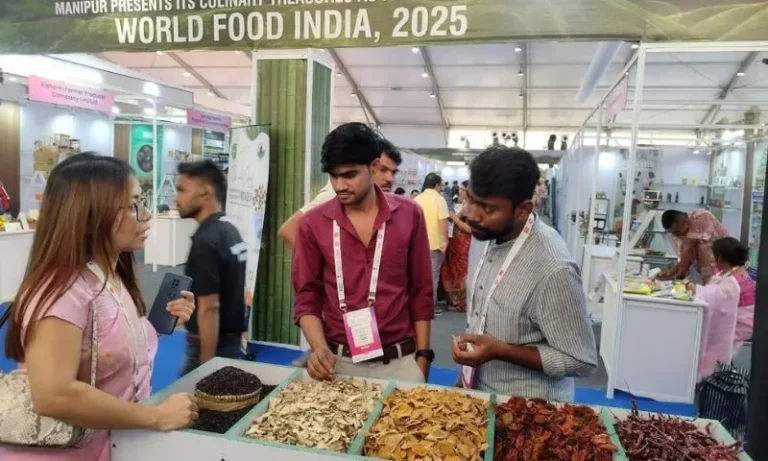Prohibitory Orders Imposed in Manipur’s Lilong After Mob Torches BJP Leader’s House Over Waqf Bill Support
On April 7, 2025, the Thoubal district administration imposed prohibitory orders under Section 163 of the Bharatiya Nagarik Suraksha Sanhita (BNSS) across the Lilong assembly constituency. This action followed an incident where a large mob, reportedly numbering between 7,000 to 8,000 individuals armed with sticks and stones, set ablaze the residence of Md Asker Ali, the president of the BJP Minority Morcha in Manipur. The attack was allegedly in response to Ali’s public support for the Waqf Amendment Act, 2025. In the aftermath, Ali retracted his support and issued a public apology, calling for the repeal of the Act.
Unraveling the Lilong Unrest: A Deep Dive into the Waqf Amendment Act Controversy
Hey there! Let’s take a moment to delve into a recent event that’s been making waves in Manipur’s Lilong assembly constituency. It’s a tale of politics, public sentiment, and the power of social media. So, grab a cup of your favorite beverage, and let’s get into it.
The Spark That Ignited the Flames
Imagine this: a quiet evening in Lilong, suddenly disrupted by the uproar of thousands. On April 7, 2025, an estimated 7,000 to 8,000 individuals, armed with sticks and stones, converged upon the residence of Md Asker Ali. Their grievance? Ali’s public endorsement of the Waqf Amendment Act, 2025. The situation escalated rapidly, culminating in the torching of his house.
Who is Md Asker Ali?
For those unfamiliar, Md Asker Ali isn’t just any local figure. He’s the president of the BJP Minority Morcha in Manipur, representing the Meitei-Pangal (Manipuri Muslim) community in the Lilong constituency of Thoubal district. His influence in the region is notable, making his public statements carry significant weight.
The Waqf Amendment Act, 2025: What’s the Fuss About?
Now, you might be wondering, what’s this Waqf Amendment Act, 2025, that’s causing such a stir? While the specifics of the Act are intricate, at its core, it pertains to changes in the management and administration of Waqf properties—assets dedicated for religious or charitable purposes in Islamic communities. Such amendments can be sensitive, touching upon deeply held beliefs and traditions.
Social Media: A Double-Edged Sword
In today’s digital age, a single post can ripple through communities like wildfire. Ali took to social media to voice his support for the Waqf Amendment Act. However, the backlash was swift and fierce. Recognizing the mounting dissent, Ali released a video on Facebook, retracting his earlier support and calling for the Act’s repeal. He expressed remorse, stating, “I feel so sorry for what I have said. Next time I will not do it.”
The Aftermath: Prohibitory Orders in Place
In response to the unrest, the Thoubal district administration didn’t sit idly by. They imposed prohibitory orders under Section 163 of the BNSS across the entire Lilong assembly constituency. This move aimed to prevent further assemblies that could escalate tensions. The orders specifically prohibit gatherings of five or more people and the carrying of weapons, be it firearms or even sticks and stones.
Community Sentiments: A Delicate Balance
The incident underscores the delicate balance leaders must maintain between personal beliefs, party lines, and community sentiments. Ali’s initial support for the Act might have aligned with certain political perspectives, but it evidently clashed with the sentiments of his local community. It’s a poignant reminder of the intricate dance of politics, where one misstep can lead to widespread repercussions.
The Role of Law Enforcement
While the prohibitory orders are a step towards restoring peace, the role of law enforcement in such scenarios is multifaceted. Beyond just imposing restrictions, there’s a need for active dialogue with community leaders, understanding the root causes of dissent, and ensuring that measures taken don’t further alienate the populace.
Media’s Influence: Informing or Inflaming?
Events like these also bring to light the role of media—both traditional and social—in shaping narratives. While it’s essential to inform the public, there’s a thin line between reporting and sensationalizing. Responsible journalism becomes paramount to ensure that information disseminated doesn’t inadvertently fan the flames of discord.
Looking Ahead: Healing and Reconciliation
The path forward for Lilong involves more than just lifting prohibitory orders. It requires genuine efforts towards healing and reconciliation. Community dialogues, transparent discussions about the implications of the Waqf Amendment Act, and platforms for airing grievances can pave the way for mutual understanding.
Conclusion: Lessons from Lilong
The events in Lilong serve as a microcosm of the broader challenges faced in diverse societies. They highlight the importance of sensitivity in leadership, the power and pitfalls of social media, and the ever-present need for open channels of communication between leaders and their communities. As Lilong navigates this tumultuous period, the hope is for a future where dialogue triumphs over discord.
FAQs
- What triggered the mob attack in Lilong?
- The mob attack was sparked by local opposition to support for the Waqf Bill, which many in the community viewed as a threat to their cultural and religious identity.
- Why were prohibitory orders imposed in Lilong?
- Prohibitory orders were imposed to contain the situation, prevent further violence, and give law enforcement the necessary space to restore calm in the area.
- How has social media influenced the situation?
- Social media has played a dual role—while it has helped spread awareness about the incident, it has also contributed to the amplification of emotions and misinformation, complicating efforts to manage the unrest.
- What are the broader implications of this incident for local politics in Manipur?
- The incident highlights deep-seated divisions and may influence future political strategies, as parties reassess their approaches to sensitive issues like the Waqf Bill, balancing reform with respect for local sentiments.
- How can the community work towards healing and unity after such an incident?
- Building bridges through open dialogue, community forums, educational initiatives, and collaborative efforts between leaders and citizens can help mend divisions and foster a sense of shared identity.


